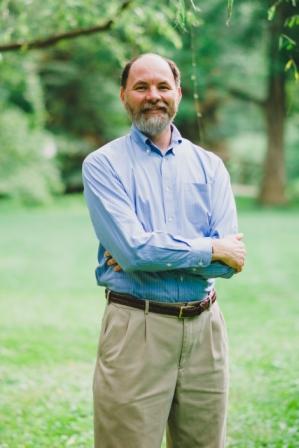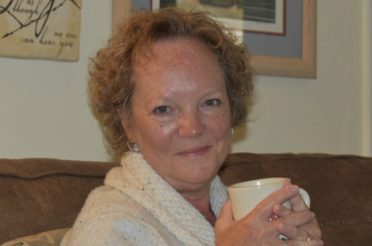By Roger Barbee
This morning, the last one of November 2013 was extremely cold when I took the hound out for his morning ramble. The sun’s rays had not yet cleared Short Mountain, but they gave the few hovering clouds a warm, pink hue. However, that was the only warmth we had, so the trip was quickly finished when the necessary duties were accomplished. Yes, I thought as we passed the new garden just planted in the fall, earth is in her winter mode, at rest. Her seasonal nap was evidenced by the heavy frost on dead grass, the browned, bent stems of the mums, the limp hostas, and the frozen water in the small bird bowl. It was so cold that not even crows or blue jays had emerged for the day.
The Ancient Greeks explained this change in weather by the myth of Persephone who was kidnapped and made to wed Hades. Her mother, Demeter, was furious and demanded her fair daughter’s return to earth. But because Persephone had eaten some seeds in the underworld, she could not live all the time on earth. Thus, when she came to earth her arrival was marked by new growth of plants in the spring, but when she returned to spend time with her husband, the earth’s plants turned the brown and lifeless of winter. Not a scientific explanation of earth’s tilt on its axis, but a colorful one that has entertained people across the ages.
As I scurried into the house with the hound, I was thinking of how dull everything was, even with the sheen of heavy frost reflecting light and making small diamonds on the grass and leaves. Settling in at the breakfast table with a cup of coffee and Mary Ann, I watched this last morning of November 2013 unfold into one I had not anticipated.
Naps. I had not thought of naps in a long time, but as I watched the morning come in the dead cold of November, I saw our few acres as napping. I can still recall as a child fighting to keep from taking a nap, doing anything to keep off that quilt pallet on the living room floor or if in the summer, spread on the cool grass under the shade of a maple tree. I recall wanting to stay awake for those few afternoon minutes because I did not want to miss anything that may happen. Now, as an adult, I take a nap at the first chance, even in some late mornings. And that is what our land is doing now—taking a nap, getting some rest, re-charging batteries, or whatever you want to call it. Yet it seems that in our modern world we have lost touch with naps and the beneficial rest they give us.
We seem so intent on doing in our modern lives. We seem to value each day by what we have done, not by how we have done. Thinking that way, we are always doing something whether it adds value or not to our lives. We have, it seems to me, to have become a culture of doers always busy with some task. Yes, being productive is good, but a time of rest is as important as a time of work. Each compliments the other when balanced together.
This past week at school I had a conversation with another teacher about a mutual student who was scheduled to be two places and in two activities at the same time. The other teacher asked if there was some way we could help the student do both. I explained that, in my mind, life was about choices and that the student could choose what activity to do after discussing options with his parents. It was his choice to make, but I wanted nothing to do with helping him believe that he, or any one of us, could do all we wanted. We agreed to let him choose and to support his choice. However, too often I see parents and other adults helping youngsters “do it all” by over planning each day that has no nap time.
Often at school, I see students scurry to the cafeteria, get a tray, and rush to a classroom to do some academic work while they munch on their food. I question the quality of the work being done, and certainly the quality of the time set aside for eating. It should be a time of rest, but it has, too often, become a time to get more done.
As I began my second cup of coffee, I considered these things. We are so busy with doing it, it seems, that we do not see the thrill of life in front of us. We rush from one thing to the other in the belief that we are accomplishing some great achievement. But I wonder.
Maybe if we each took some time in each day to rest and reflect, we might get more done. I am re-reading the collected letters of John Keats, the poet, and marvel at the number of letters he wrote to family and friends. And he did this with a quill and little paper. Yet, we have computers and all of their technology, but do we accomplish what Keats did? It seems that we are so busy doing that we do not do.
Take a nap. Just sit. Stop and be still. Listen to your inner self. Reflect. Perhaps you will, in the end, get more done and be better for it.







